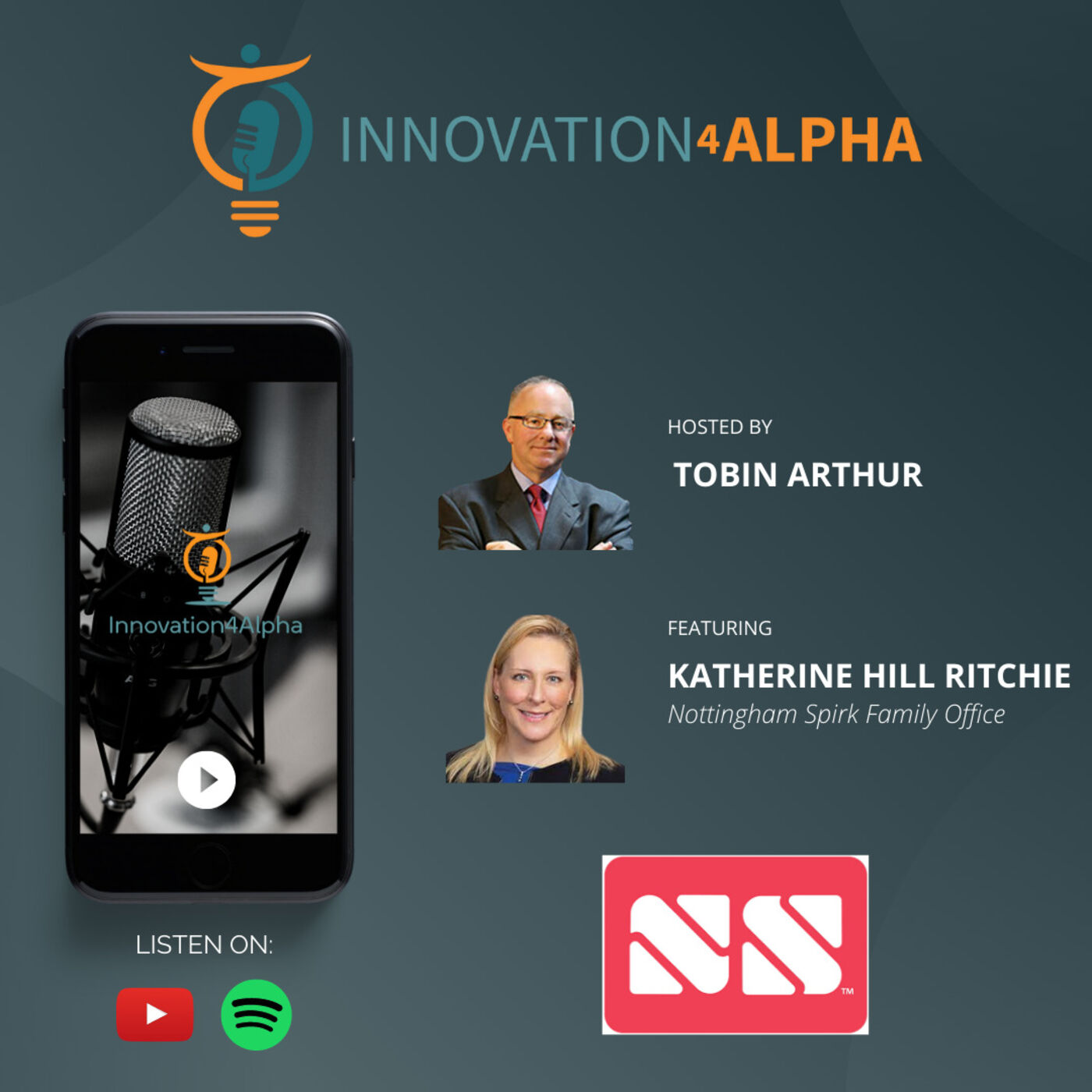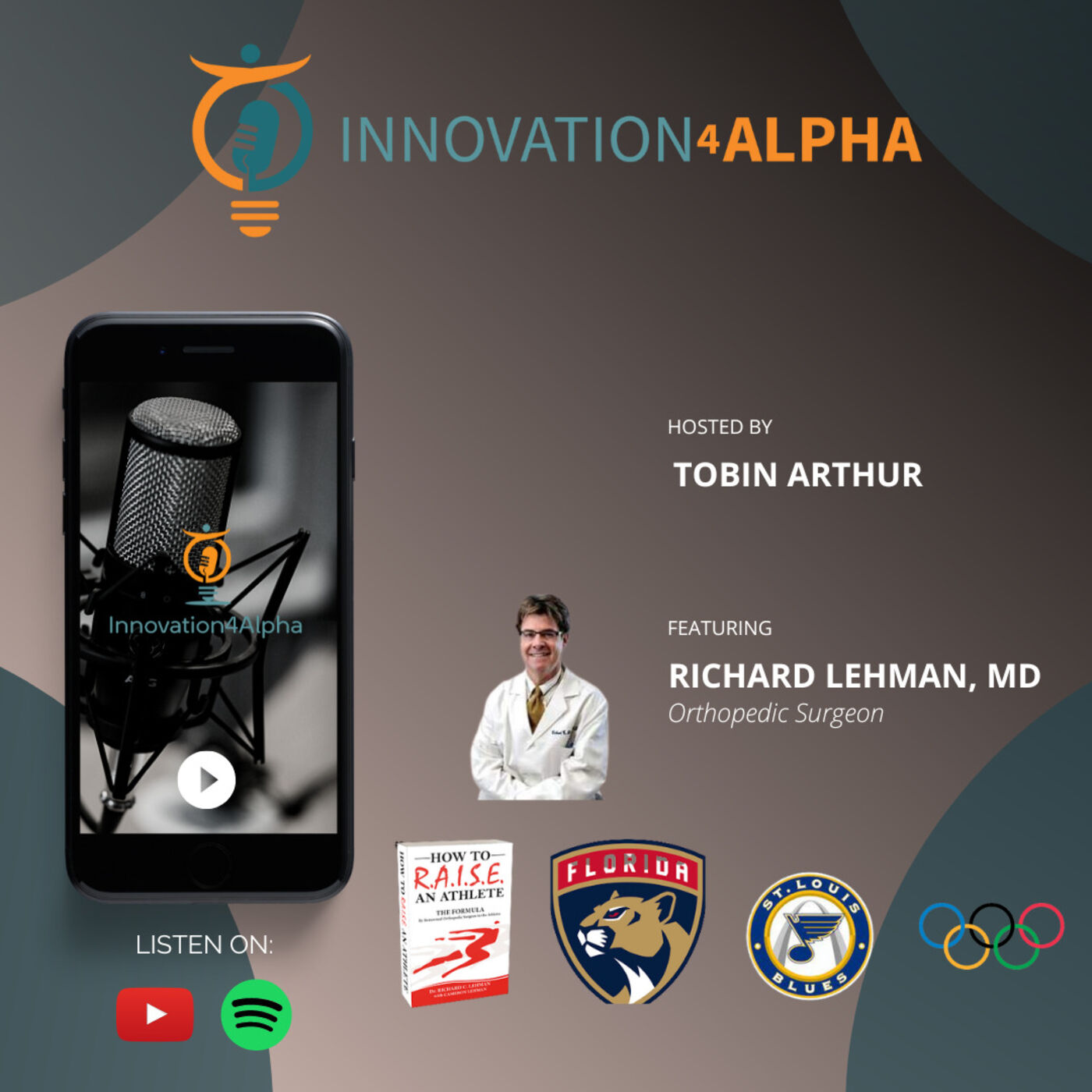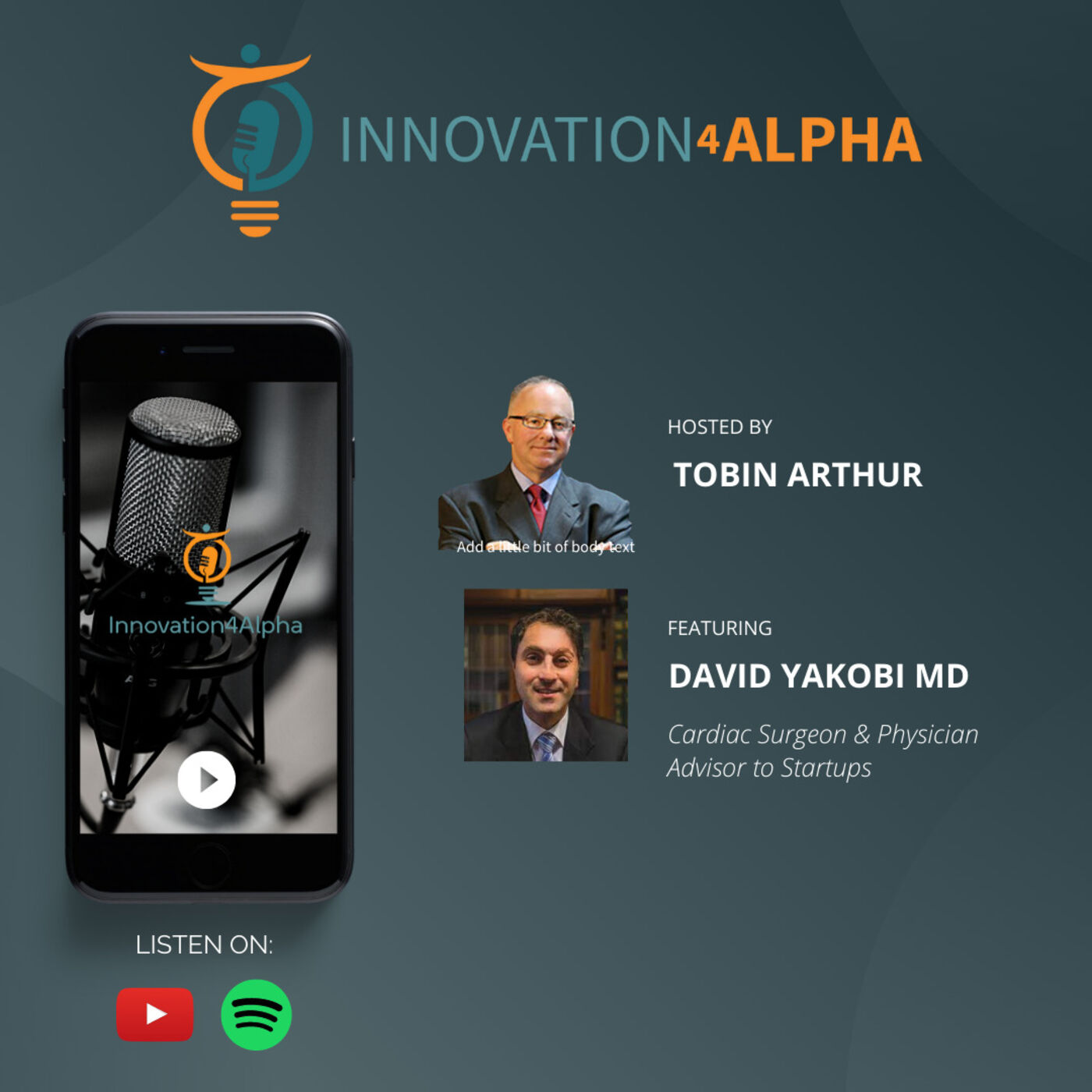Episode Transcript
<cite>Tobin Arthur:</cite>
<time>0:27</time>
<p>Hi, everybody, this is Tobin, Arthur, your host guest, Dr. Saralyn Mark, who, if I read her resume, we would be many interesting things in her background. But Dr. Mark,</p>
<cite>Saralyn Mark, MD:</cite>
<time>0:48</time>
<p>Tobin, thank you so much for inviting me,</p>
<cite>Tobin Arthur:</cite>
<time>0:51</time>
<p>Well, it's gonna be fun just getting to know you opens up more doors. But maybe let's start out with as much of your medical, you know, training and early career and then up to</p>
<cite>Saralyn Mark, MD:</cite>
<time>1:12</time>
<p>Yes, so going back many moons ago, I am a in reproductive endocrinology. Also geriatrics and I created University of California, San Francisco, then became the worked with the Surgeon General, and then also worked with NASA White House in the Office of Science and Technology Policy. consultancy called Solomon solutions. So I get to provide organizations and agencies, across the globe, and across the acronyms in Washington. So it's called AI giant. And it stands technologies. And we're really the only nonprofit accelerator sectors. So let's unpack that just first. So when explain that little bit more detail? Yeah, so the mission of AI giant is to accelerate the translation me explain what that all means. So design element can be a definitions of sex and gender we take from the National Academy is more than the psychosocial. We know that everything seems genetics. So as we Annamaya interact with the environment, sex, gender to kind of help define where we are. And our improve the safety and quality of life for everyone in every a very broad stance, we take a non binary approach, but it's equity, the only way we can actually achieve it, is if we and tools to do their jobs while safely to live well and safely.</p>
<cite>Tobin Arthur:</cite>
<time>3:33</time>
<p>Give an example, if there's a simple one that that you're looking at.</p>
<cite>Saralyn Mark, MD:</cite>
<time>3:41</time>
<p>Absolutely. So I giant has a toolkit. And in especially round table. And these round tables provide go back to the respective organizations. And there are really the the exponential experiential component of a drug side effect? And almost invariably, everybody has said differently. I also believe the vaccine dosages need to be younger individuals, older individuals tend to get a larger that as well. And so we see, for example, more side effects from have really robust immune systems. And another area that's process information very differently. So we see increased use electronic health record, because the programs are really increased repetitive stress injuries in women compared to Greater tactile sensation. So they think they're pressing down imagine, in the world we live in today, 24/7, we're attached to but in the bed these days, because they're just so day out, we're actually seeing increased repetitive stress 47%, more likely chance of having a more severe neck injury positioned in the seat of the car, influences it so we can do one was actually really fascinating. We've seen this in The Hill in early, mid February. And it was looking at that is not an average size, Caucasian European, male and haven't done it until often we're really pushed against the some of the things we talked about in personalized medicine, therefore, any drug, any nutritional application is not lots of advances, there are things that we can do better for of what I would, you know, look at as public private</p>
<cite>Tobin Arthur:</cite>
<time>6:39</time>
<p>Talk a little bit about some of the things you've societally, and working with government because it's not us half of our health care, on and on and on. There's lots of public, private or private partnerships and how we can</p>
<cite>Saralyn Mark, MD:</cite>
<time>7:05</time>
<p>I think public private partnerships are edge of technology, because keep in mind, the shareholder for the time before we want the return on our investment, compared to for example, when you look at health care, we have many give you the name of one program was missiles to mammograms. We outdated, over 40 to 50 years old misses a lot of breast sensitive, specific technology. And so what we did is we start using some of their technology, the neural networks, launch missiles, the Hubble telescope uses important silicon began doing that. And now today exactly that we have digital specifically, and in a more sensitive manner, and hopefully NIH National Institutes of Health, they have the Center for that so called valley of death, which can mean that it could then some of these wonderful ideas just die, and they fall government, we can move these ideas from concept to actually</p>
<cite>Tobin Arthur:</cite>
<time>8:50</time>
<p>And you mentioned NASA, just maybe touch on some begin with?</p>
<cite>Saralyn Mark, MD:</cite>
<time>8:58</time>
<p>Well, I think like all of us products of the actually, that I got to see human beings walk on the moon. listening to it to this, we remember that moment in time, moment, I knew I wanted to be an astronaut. Fortunately, no one 1970s. So I was able to continue with my delusion that I could be if you have dreams, you can make things a reality and actually working with NASA on some of my other areas that I'm passionate NASA as a Senior Medical Advisor to help me Battlelog and so it of this space shuttle program and then began to see us As we transition from the shuttle to the International Artemis, to go to the moon and working with other groups to just been, for me an extraordinary experience. And health preparedness. So for example, at the time, we were White House. And I got to see that public health issue from technology for NASA to improve what we were doing for treating remote sensors to robotics, to protective equipment. So it's incredible experiences.</p>
<cite>Tobin Arthur:</cite>
<time>10:48</time>
<p>That's pretty neat. And I imagine you, as a intelligence and passion and all kinds of characters.</p>
<cite>Saralyn Mark, MD:</cite>
<time>11:01</time>
<p>Absolutely. I have a book. It's called stellar a part memoir, part guide book on controversial health issues. constructs, which shape our decisions. But what I love about So I get to talk about some of my friends and colleagues. And through the pandemic through all our life's experiences. Because they just see the world so uniquely, and they are so I to what they do, but it's just a balanced view of what we need to measured in space exploration, as well as our life here on this</p>
<cite>Tobin Arthur:</cite>
<time>11:57</time>
<p>Any interest by the way of ever jumping on the</p>
<cite>Saralyn Mark, MD:</cite>
<time>12:04</time>
<p>Absolutely, I if you asked me today, I would because we can bring it to space. Hello. Yeah, absolutely. commercial space sector really democratize space exploration. one of the issues that we do need to do is to ensure that the wealthy person's adventure. Right? And again, it had its of this. Yeah. So I would really love to see that we do a really component and bring commercial space to everybody who is on ways to bring individuals into space who may not have $55</p>
<cite>Tobin Arthur:</cite>
<time>13:01</time>
<p>Speaking of space, just while we're on that topic, big space presence. Can you maybe just mentioned a little</p>
<cite>Saralyn Mark, MD:</cite>
<time>13:11</time>
<p>Yeah, so I am a proud third generation pioneered. It's really the largest commercial space sector Roundtable. We had alair Saman, who was who was the president for my nonprofit. And I've had the privilege again, to provide do roundtable. It's really exciting, because I think what innovative technology sectors together, they amplify. And I where we're going in the space program.</p>
<cite>Tobin Arthur:</cite>
<time>14:00</time>
<p>Love that endorsement, while we're on the you know, for most people, they'll never have access to the working with Whitehouse, give us a good example of what that mean, what is the process of working with the White House</p>
<cite>Saralyn Mark, MD:</cite>
<time>14:27</time>
<p>Yeah, so again, I was with the White got to go over to the White House compound. And at the time, moment that I walked through those gates, I was so proud to about our history, and about the importance of what we were doing I giant my nonprofit actually had it's just In the White House and I always tell people, we were given whiteboard, we were given a chalkboard, each of us had a because we would develop these wonderful ideas. And then at the never hacked. The old lesson technology, no legs, exactly the old fashioned the chalkboard, which was great, because it allowed me to go back and allowed me to to be a bit bit creative. So I created a especially women were getting infected when they were donning on the Precision Medicine Initiative at the time. And so sex and gender. And that's how I began to develop the blueprint is that you have access to meet with so many interesting people other part of it is it's the people's house. So every day and their concepts. And we would have this wonderful mutual exhausting. I think being a doc prepares you for that, because just an extraordinary experience and one that I truly treasure.</p>
<cite>Tobin Arthur:</cite>
<time>16:35</time>
<p>So just walk us chronologically you finish up to build a giant was that the next piece here?</p>
<cite>Saralyn Mark, MD:</cite>
<time>16:46</time>
<p>Well, I think I'm I'm from my life. I've never at the same time. So let me backtrack even sure there. So endocrinology after I did my internal medicine residency, and began working with Rupert intergroup at UCSF as well. And older women. And at that time, that was women over the age of how you know, in your mind's eye when you are 30, what you think then as I started to put the dots together, I realized, you really has to be an integrated, holistic view of it, and I began fellowship. And so I was doing research and clinical care for radiology department cardiology, general endocrine, OBGYN, repro, and just on call, again, 24/7. This was sort of the pre having was more what you could put in a backpack, right? So Oh, in the world back then. But it was really, for me a wonderful and to seek connection. And then I had this idea that we needed where these are multidisciplinary centers that and career development. So as a young fellow, I pitched the idea my call room. And she liked it. She was coming out to life changed because she said, we'll bring it to Washington and gave me a faculty appointment, I just finished my fellowship, to get this so called Potomac fever. And I ended up staying, them up to such huge dimensions, it's really exciting. And that's hasn't been created. I try to create a blueprint. And then I reality, and I think that's what we all do, in many ways. So over then decided I wanted to work more closely with companies and House, I was working also with NASA and became the medical So it's just the nature I think all of us multitask. Ask very few of us get to do just one thing. But there's because you get to connect all the partners you work with.</p>
<cite>Tobin Arthur:</cite>
<time>20:10</time>
<p>Well, let's touch on the other group that you just industry. And obviously, there are additional, you know, huge device or what have you. So walk a little bit through your little bit on on how industry and the public sector can work</p>
<cite>Saralyn Mark, MD:</cite>
<time>20:37</time>
<p>Yeah, yes. So I've had the opportunity to work companies and some of our startups, both in the think what has been fascinating for me is that I watch ideas go the public. And I think along that spectrum, you see where crossed and bypassed. And then the, you know, some wonderful it, where they're phenomenal concepts, but they're just not expensive, or they really don't meet the needs of that preconception phase that that exercise is performed, it can the other part of it is early on, start to think about your certainly industry, but also government and NGOs and very rich treasure trove for for brilliant incubators and have to see who is your audience? And how are you going it can survive in the marketplace?</p>
<cite>Tobin Arthur:</cite>
<time>22:07</time>
<p>Do you see this trend? Or have you, you know, internal r&d, and instead looking at the market, ie effectively be the external r&d? And as they see things that are are your thoughts on, you know, the opportunity there for is treating the market like that?</p>
<cite>Saralyn Mark, MD:</cite>
<time>22:39</time>
<p>I do see that. And it's not to say that there acquisition phase, and I've often talked with a lot of want to find that larger partner to scale up their concepts. I know, it takes a considerable amount of revenue to bring an I think if you could work in tandem, maybe a greater lot of companies will go to incubators and help to mature think the hardest part is when startups invest so much time and didn't know whether it was something that was really something new. There. That's where the guidance comes in. NIH programs, in particular, they're very good at that popularized. And they really spend a lot of time upfront on don't have the mindset of build it, and they will come they want I'm building because if they're not, this is probably not going job in their programs at the NIH, as I mentioned, whereas a attention to that marketability, or that commercialization. It's of that later.</p>
<cite>Tobin Arthur:</cite>
<time>24:36</time>
<p>As you look forward and you know, is as number of different pots. They're interconnected. As you a rhyme to the reason. But over the next year, two years, what What does success look like for you? You know, if you look back</p>
<cite>Saralyn Mark, MD:</cite>
<time>25:04</time>
<p>So is that important question, and I think using a sex gender lens. So I think all of us have guiding many different tangents, you still have your direction of a really exciting tool kit. As I mentioned, we have round tables processes, so that companies can use this skill to actually areas that we work with, such as challenge competitions. And I some of the issues we talked about are important, the is it? And how viable How feasible is it to actually accelerator for the accelerator, I've certainly seen during this challenges, and we have corporate advisory councils, but take these ideas to marketplace. So it's important, I think, in that you're seeing it through the various what I call human improves, it mitigates the economic, the legal, the employer, employee client satisfaction improves the market that's one driving goal. The other and we've talked about able to share our messages, and do it in a way that is clear and extraordinarily important. And then the other part of it is been traditionally touched to expand what we're doing in and intelligence and in military, and sort of the healthcare. I mean, we talked about in government, we have it from health. And I think that's where I see that public our own efforts can do that. So whenever I work with clients, I be brought in to either provide advice or guidance or extra say design, have you worked with some of the design firms? and that concept of human centered design seems like it's also interacted with in your various projects? Yes, yes, the pandemic, we had some really interesting partners on board component. It just, they often are not brought to the table at actually looking at the user interface until the very end, go back in and redesign. So I really think at the start, they Yeah, that makes sense.</p>
<cite>Tobin Arthur:</cite>
<time>28:45</time>
<p>Speaking of Google and space, my co founder, Jens favorite people in the world. But he's a member, might even be life. Where do you come down on this on this topic? Is there is</p>
<cite>Saralyn Mark, MD:</cite>
<time>29:07</time>
<p>It's so funny, you you brought that up, I was many years of letting everything be in piles. And I found an have some of our exoplanets that are just perfect for life that that was published and I talked about it being the universal system here. We will all become human we will all become one. We other social determinants that divide us we will all be human there's zillions of stars and heard all these stars we have the way that we recognize it, but I also I also think we're So we are actually the aliens that might be a sci fi novel. will be very busy. lots lots to write about. Lots to write about.</p>
<cite>Tobin Arthur:</cite>
<time>30:26</time>
<p>Well, let's wrap it up there. I think we can go down any number of these things in more detail, but it's listening continues to lean in and listen, we're going to put that you would like to highlight, including talks that more and more to come. So Dr. Mark, thank you so much for</p>
<cite>Saralyn Mark, MD:</cite>
<time>31:05</time>
<p>Tobin, it was a pleasure. Thank you so much stars. Well, and while you're doing that, we are looking as a native. Absolutely, my bags are packed.</p>
<cite>Tobin Arthur:</cite>
<time>31:23</time>
<p>Thank you.</p>


